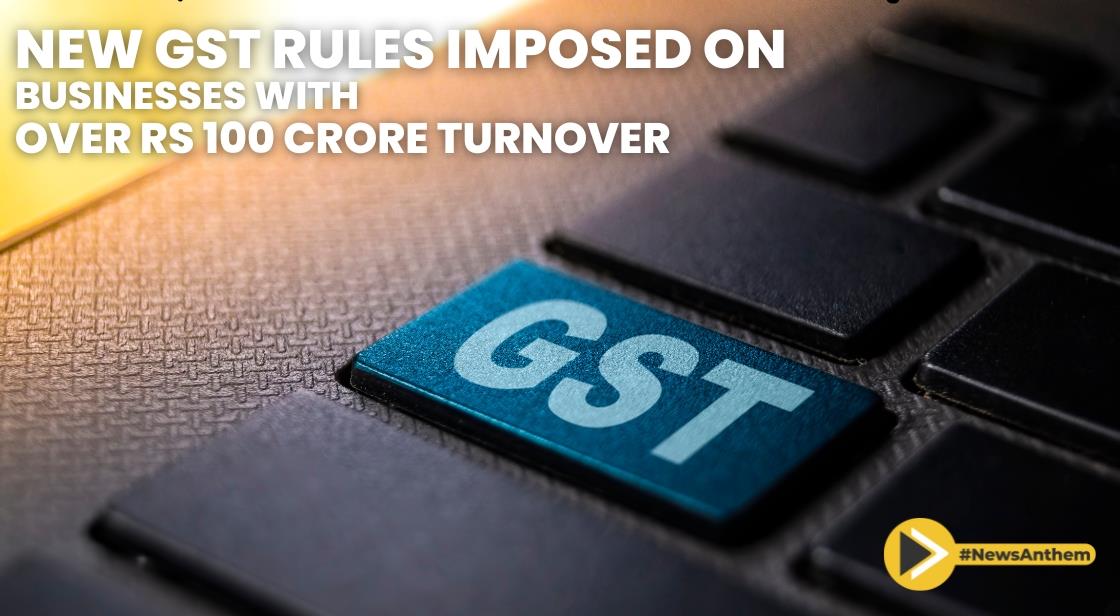New GST Rules Imposed on Businesses with Over Rs 100 Crore Turnover

News Synopsis
The Indian government has introduced new Goods and Services Tax (GST) rules that require businesses with a turnover of Rs 100 crore or more to upload their electronic invoices on the Invoice Registration Portal (IRP) within seven days of issuance, starting from Monday. Failure to comply with this new rule may result in businesses being unable to avail input tax credit (ITC). The GST Network (GSTN) emphasized that taxpayers in this category will not be allowed to report invoices older than 7 days on the date of reporting to ensure timely compliance.
Details of the New GST Rules
According to GST Network (GSTN), “To ensure timely compliance, taxpayers in this category will not be allowed to report invoices older than 7 days on the date of reporting,”
The government has decided to set a time limits on submitting old invoices on the e-invoice IRP portals for taxpayers with aggregate yearly turnover higher than or equal to Rs 100 crore, according to a GST Network advise to taxpayers. Businesses currently upload their invoices to IRP on the current date, regardless of when the invoice was issued.
Under the new rules, businesses with a turnover of Rs 100 crore or more must report invoices on the current date or within seven days of issuance. The restriction will only apply to invoices, and there will be no time restriction on reporting debit/credit notes. The GSTN explained that the validation system built into the invoice registration portal will disallow the user from reporting the invoice after the 7-day window. Businesses must ensure that they report the invoice within the 7-day window provided by the new time limit. Failure to comply with this rule may result in businesses being unable to avail input tax credit (ITC) as per GST law.
The new rules aim to prevent the backdating of e-invoices by large companies. The AMRG & Associates Senior Partner Rajat Mohan stated that after successfully implementing this for large taxpayers, the government is expected to roll out these changes for all taxpayers in a phased manner. Currently, businesses with a turnover of Rs 10 crore and above are required to generate electronic invoices for all B2B transactions. The threshold for mandatory e-invoicing for business-to-business (B2B) transactions was lowered to Rs 100 crore from January 1, 2021. From April 1, 2021, companies with a turnover of over Rs 50 crore were generating B2B e-invoices, and the threshold was brought down to Rs 20 crore beginning April 1, 2022. From October 1, 2022, the threshold was further lowered to Rs 10 crore.
You May Like









